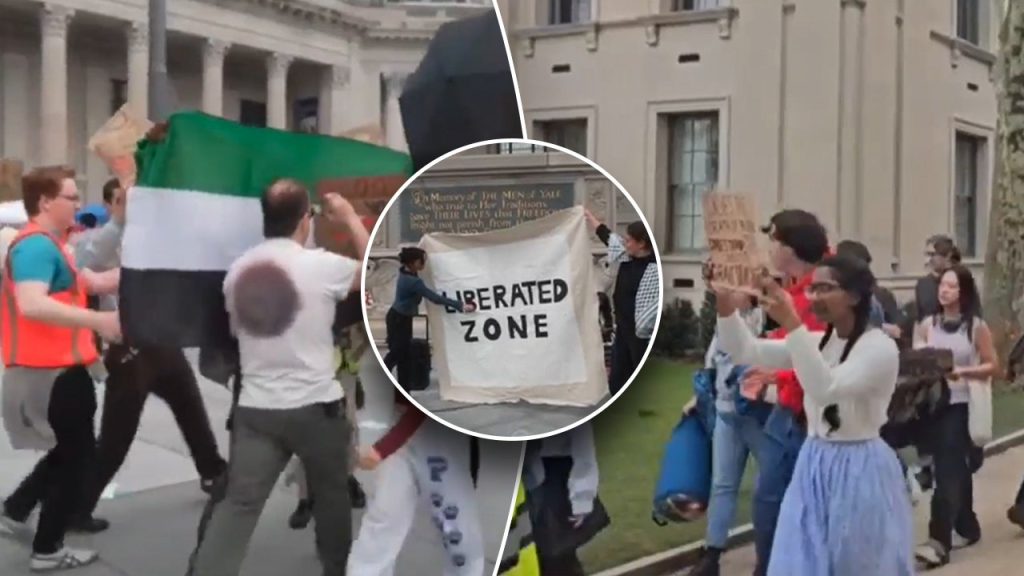Anti-Israel activists at Yale University in Connecticut recently set up a “liberation zone” in solidarity with Columbia University in New York City, following protests at Columbia where demonstrators were heard shouting pro-Hamas slogans and setting up an encampment on campus. At Yale, protesters laid down a banner that read “Liberated Zone” and held other banners with messages such as “Stop Investing in Genocide” and “Jews for Ceasefire Now.” Videos from the protest show students holding signs, chanting slogans, and setting up tents in a communal area.
The protests at Ivy League universities like Columbia and Yale have been compared to the Occupy Wall Street movement, with protesters addressing issues of economic inequality, corporate greed, and the influence of money on politics. William Jacobson, a Cornell Law Professor who has studied the Boycott, Divestment, and Sanctions (BDS) movement, believes the protests are a result of years of dehumanization of Israeli Jews on campuses. He noted that while the protesters at Yale established a “liberated zone,” they still rely on the system for essentials like water and food.
Jacobson pointed out that the BDS movement is more about creating dialogue around the perceived evils of Israel rather than actual boycotts of products. The movement has been criticized for its emphasis on dehumanizing Jews who support Israel. He also mentioned the psychological aspect affecting students who may be disillusioned by mounting debt or lack of career opportunities, with Israel and Jews becoming convenient scapegoats. He believes the anti-capitalist movement focuses on Israel as a means of dehumanizing Jews.
At Columbia University, tensions reached a breaking point when the NYPD arrested over 100 people who refused to leave an encampment on the main lawn. U.S. Rep. Ilhan Omar’s daughter, Isra Hirsi, was among those arrested during the protests. Hirsi later stated that she had been suspended from Barnard College for standing in solidarity with Palestinians facing a genocide. Social media posts show New York City council members visiting the ongoing protest. Meanwhile, a BDS referendum was sent to Cornell University students for a vote, indicating a widespread movement across various campuses in the U.S.
Despite the protests and activism seen at universities like Columbia and Yale, Jacobson believes that these movements lack a positive agenda and are built around tearing things down. He argues that the protesters, who are ostensibly anti-Israel, are also anti-American and anti-capitalist. He suggests that these movements are “dead end” and may not have a sustainable future. Jacobson emphasizes the overlap between anti-Israel, anti-American, and anti-capitalist sentiments in these protests, pointing to a larger agenda beyond the conflict in Gaza.


